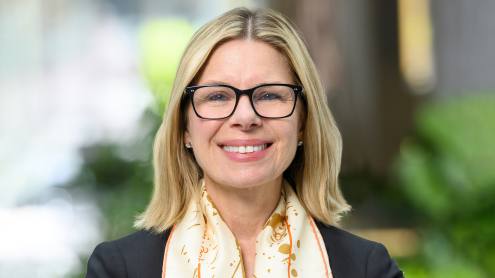Q: The Central Bank of Kuwait (CBK) has implemented new regulations to deal with the effects of the global financial crisis on Kuwaiti banks. What are they and at what stage of implementation are they?
A: We took a precautionary route very early on to shield Kuwaiti banks. As far back as December 2008, we introduced ‘precautionary provisions’ to ensure the CBK would monitor banks’ activities closely, taking into consideration both general and specific problems that we identified within the banking system. The aim was to ensure the banks were not getting involved in highly risky investments, but also to continue to reduce their non-performing loans and maintain a high capital adequacy ratio.
Of course, we are still moving forward with caution, but we are moving all the time and observing the way the system operates; and we intervene when necessary. We are improving our supervisory approaches and are monitoring the entire industry closely.
We have also introduced a new method of ‘offside surveillance’, whereby we can supervise banks on a quarterly basis. The idea is to monitor the quality of banks' assets and also to ensure banks comply with our regulations.
There are, however, areas that need further work, and we have been asking parliament for improvements. New legislation has to be passed as some laws are outdated and do not meet the needs of today’s business environment. The commercial law, for instance was passed in the 1960s and, while it was perfectly suited to the country at the time, it is not a suitable tool today.
The companies law, for instance, does not allow companies to participate in issuing debt instruments and is therefore limiting to their activities. A new law is before the parliament and we are waiting for it to be approved, hopefully sometime this year, though this is beyond the CBK’s control.
Q: What impact have these rulings had on the banking system?
A: The banking system is on a steady path of recovery and reflecting the overall economy, which is now doing well. As a result of the new regulations we implemented, banks did much better in 2010 than in 2009, in terms of cleaning their balance sheets and improving their performance.
Kuwaiti banks have managed to maintain high capital adequacy ratios. The average capital adequacy ratio for the Kuwaiti banking system is about 18%; the CBK minimum requirement is 12%, and Basel III requires 8%, so Kuwaiti banks have more than double the Basel requirements.
We have managed to absorb historical levels of liquidity – about Kd4.8bn [$17.22bn] – and are pleased that the banks are well equipped to implement Basel III’s regulatory framework.
Of course, the system has been doing better thanks in part to the overall health of Kuwait’s economy. Economic growth is expected to be in excess of 4% in 2011, which is good in light of recent events, and the approval of a five-year development plan by the parliament is very positive for the country’s financial industry.
The plan will involve all the major Kuwaiti financial players. The economy is expected to react positively to it and the new projects that are being launched will have a positive impact on the construction and services sectors.
It is too early to provide an accurate evaluation and I am not the right authority to provide it, but it is clear the plan will have a major impact. The rest is, of course, down to implementation of the projects.
Q: Kuwait is a major player in the Gulf Co-operation Council (GCC) and has been pressing for the launch of a single currency among member states. Where do things stand on that point and is the current climate favourable to such a project?
A: The board of the monetary union has been established and of the six member states, four are keen to press ahead with the single currency project. Saudi Arabia, Qatar, Oman and Kuwait are ready to launch.
There are still some issues that need to be resolved, however, such as the technical and legal aspects surrounding this question. Issues that need further clarification include infrastructure, and even the location of the future central bank that will govern the single currency.
While things are stalling, we are working towards the aim of a single currency: GCC members are very close to each other, and as an entity complement each other. Each country contributes with its own characteristics, and Kuwait, which is democratic and has a very good banking system, is an essential component of the GCC. When will the single currency become reality is the big question. It will happen, but we don’t know when yet.












